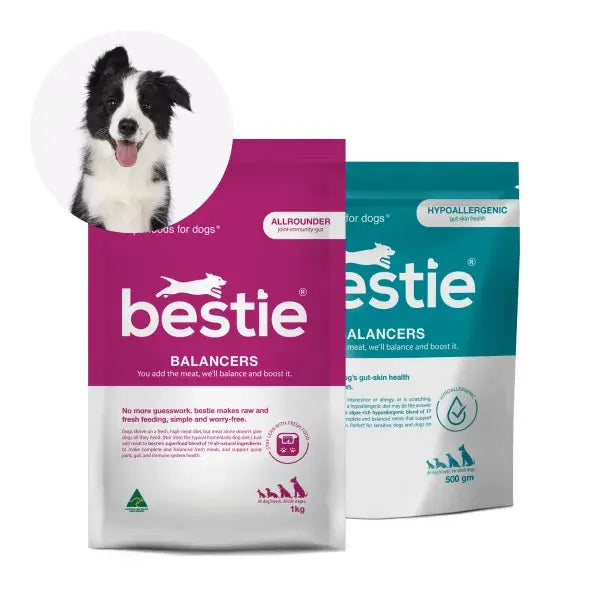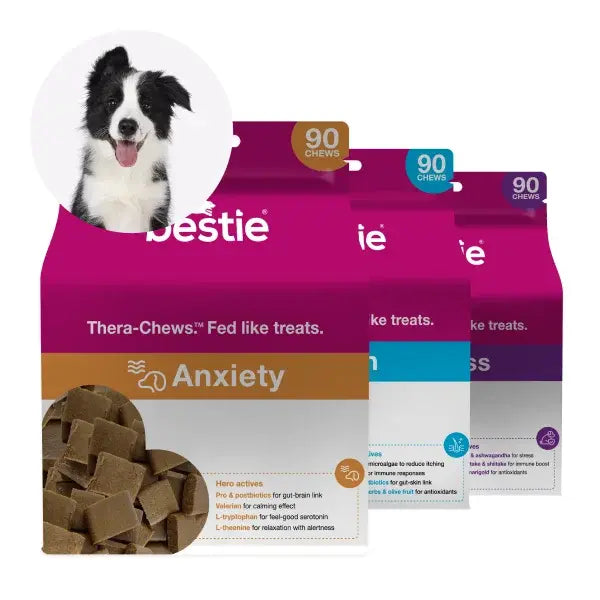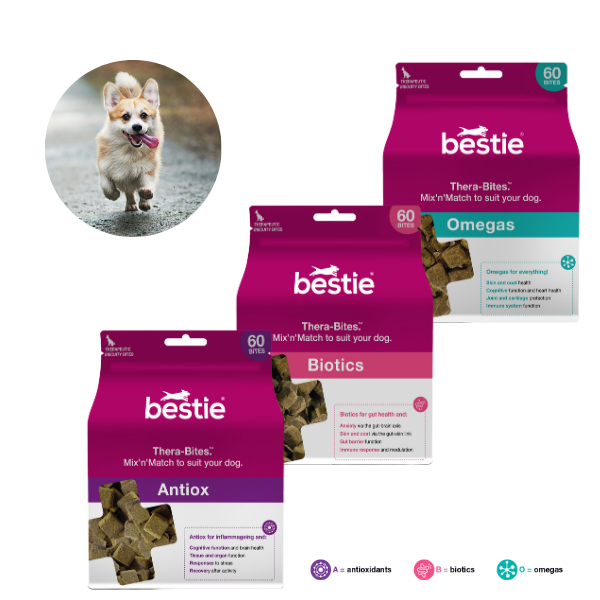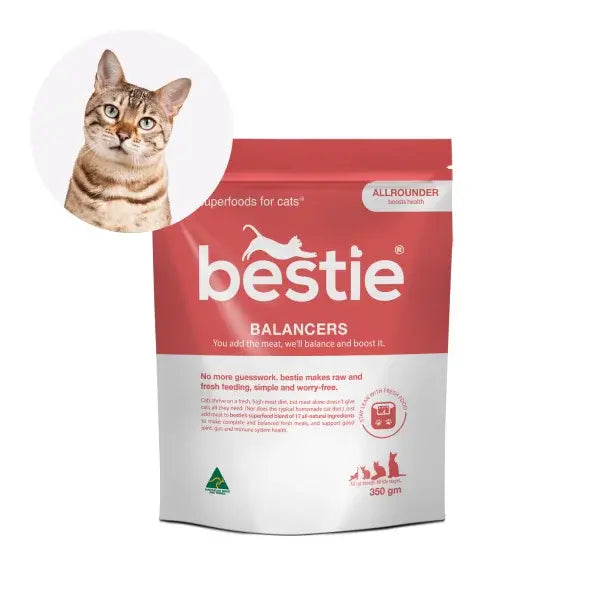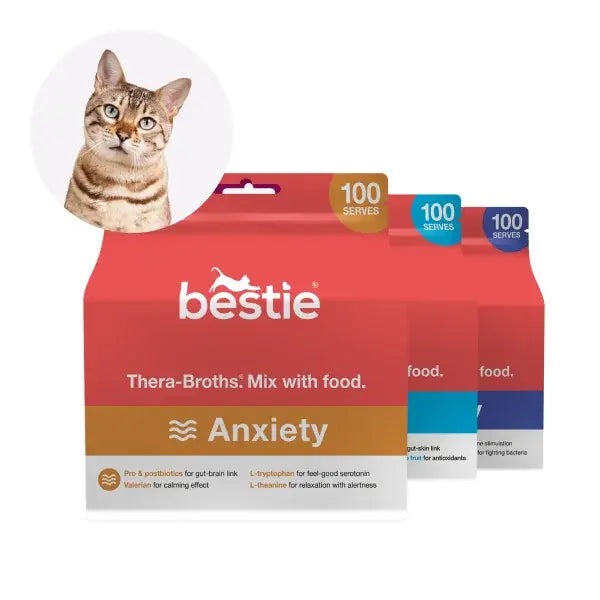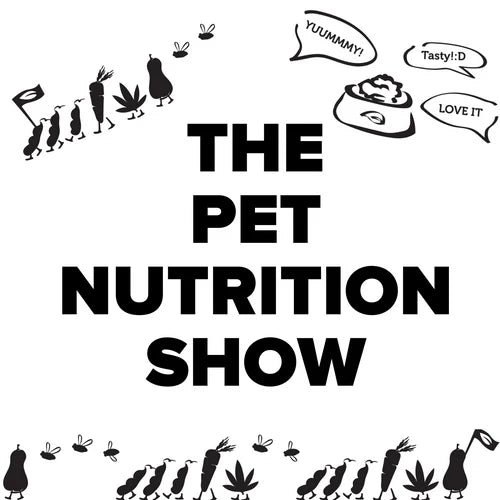In this episode of The Pet Nutrition Show, where we talk pet nutrition, sustainable pet food and all things related, we have part two of our chat with Keto Natural Pet Foods founder, Daniel Schulof.
This is a special episode, where we reveal more about Daniel's David and Goliath lawsuit against Hill's Pet Nutrition. And if you think that's an exaggeration, Hill's, part of Colgate Palmolive, had revenues $4.29 billion USD in 2023. Daniel's company is somewhat smaller.
This lawsuit centres on the issue of canine dilated cardiomyopathy (DCM) and the FDA investigation in the US into potential links to certain pet food diets.
Daniel explains how the FDA's investigation into DCM and grain-free diets led to widespread controversy, significantly impacting his and other companies. He argues that misleading information and cherry-picking of data triggered the FDA's investigation.
To put it bluntly: the lawsuit alleges that the "DCM scandal was the result of a fraudulent scheme conducted by Hill’s Pet Nutrition, along with a cluster of individuals and organisations that are affiliated with Hill’s." Daniel Schulof, on medium.
The lawsuit Daniel has filed aims to represent other affected pet food companies and to expose the alleged manipulation and misconduct that sparked the DCM scare, seeking justice and correction in the pet food industry's information ecosystem. The episode emphasises the complexity and implications of this lawsuit for pet nutrition science and industry practices.
00:00 Welcome to the Pet Nutrition Show!
00:25 Special Episode: The David and Goliath Lawsuit Explained
00:56 Understanding Canine Dilated Cardiomyopathy (DCM)
02:30 The FDA Investigation and Its Impact
06:00 Unveiling the Lawsuit Against Hill's Pet Nutrition
09:11 The Allegations of Misconduct and Fraud
18:45 Exploring the Evidence and Legal Strategy
21:56 The Long Road Ahead: Litigation Timeline and Expectations
24:52 Defining Success in the Fight Against Misinformation
27:10 Wrapping Up and Looking Forward
References:
You can read more from Daniel in a blog post here.
You can dive into the lawsuit, here.
You can listen on Apple podcasts here.
Here's a key clip below.
Have a listen to the show, but if you’re more of a reader, here's the transcript:
Note: This is an automatically generated transcript and has not been corrected for typos.
[00:00:00] INTRO: This is the Pet Nutrition Show with Amanda and Dr. Anna.
[00:00:06] AMANDA: Welcome to the Pet Nutrition Show, where we talk pet nutrition, sustainable pet food and all things related. Now, normally I'd be here with my co host Dr. Anna Sutton, but she's diving even deeper into nutrition at the Interzoo trade show in Germany.
[00:00:21] AMANDA: And we'll hear more from her and Interzoo soon. Now, however, we have part two of our chat with Keto Natural Pet Foods founder, Daniel Schulof. This is a special episode, so we won't be having the usual Q and A and food hacks. Today, we're finding out more about Daniel's David and Goliath lawsuit against Hill's Pet Nutrition.
[00:00:42] AMANDA: And if you think that's an exaggeration, let Last year, they had revenues of 4. 29 billion, and of course, they're part of Colgate Palmolive. Daniel, welcome.
[00:00:51] DANIEL: Thank you. It's good to be back. I'm glad we can continue the conversation.
[00:00:55] AMANDA: Fantastic. So I'll just do a little bit of a recap first, just so people understand what we're [00:01:00] talking about.
[00:01:00] AMANDA: So this lawsuit, is around canine dilated cardiomyopathy, DCM, for ease. And it's a disease of a dog's heart muscle. And it basically results in an enlarged heart. And as the heart and the chambers become dilated, it becomes harder for the heart to pump and the heart valves may leak, which can then lead to a buildup of fluids in the chest and abdomen.
[00:01:22] AMANDA: So congestive heart failure. If caught early, heart function may improve in cases that are not linked to genetics with obviously appropriate veterinary treatment. Dietary modification, et cetera. What we're talking about is that between January the 1st, 2014 and April the 30th, 2018, the FDA in the U S received 524 case reports of diagnosed DCM.
[00:01:44] AMANDA: I should point out as the FDA did that there were 77 million pet dogs in the U S at that time. So just so you get an understanding of proportion, there is a range of different brands and formulas included in the reports, and they include both Grain free and grain containing [00:02:00] diets in all forms, kibble, canned, raw, and home cooked.
[00:02:03] AMANDA: So, Daniel's going to pick it up from here. Is that correct so far? What happened next?
[00:02:08] DANIEL: So, I think so. The only thing that I, I'm not sure, maybe I didn't hear you correctly, or maybe it's actually a somewhat different fact. The number of the 500 and change reports that the FDA received from 2014 was through April of 2019.
[00:02:22] DANIEL: Is that what you said? Or did you say 2018? 2018.
[00:02:24] AMANDA: I said 2018, so it was 2019. Okay, fine.
[00:02:27] DANIEL: Yeah. So it's a significant distinction. I'll explain why. So here in the United States our, in the pet food industry and in the veterinary nutrition community, our understanding of DCM at a very high level was very consistent with the way that you nicely des summarized it at the beginning of the show in July of 2018, out of the blue, our United States Food and Drug Administration announced.
[00:02:54] DANIEL: that it was going to begin investigating in a very public way, whether this disease was being caused [00:03:00] by specific kinds of pet foods. And so how the FDA exactly zeroed in on and defined the group that it was looking at. changed a little bit over time, and some of the like related media coverage referred to the diets in one kind of way.
[00:03:16] DANIEL: Some people that were involved in it referred a somewhat different way. But generally speaking, it's fair to say that what the FDA was looking at was grain free pet foods. Do grain free pet foods cause dogs to develop DCM? Now, the distinction I made at the beginning of the show is really important, because Prior to the announcement of the FDA's investigation in July 2018, the FDA had actually only received 28 reports of DCM among dogs in the year 2018 up till July.
[00:03:47] DANIEL: It's a significant thing because the FDA, when it announced its investigation, said, the reason we're doing this is we've gotten a spike in case reports. And indeed, 28 cases in any one calendar year prior to the [00:04:00] investigation is a spike. Typically, the agency would receive something like four or five case reports every year, but case reports that the F that are sent to the FDA are not a good indication of the number of dogs that suffer from any disease in the United States.
[00:04:15] DANIEL: But in 2018, they got 20 something cases. Then they announced that they're going to do this investigation, the U. S. and global media to, to some degree organizations that are very global in their scope covered this U. S. based story. Yeah. it at a very high profile level, like in a way that pet food stories, I'm sure it's no different where you come from than where I come from.
[00:04:36] DANIEL: That's kind of a niche thing. It's not the every day that a pet food story makes the front page of the New York times, but this one did. It got covered in big, long form articles in the New York Times, Washington Post. And after that big coverage, then when the FDA said, we're looking at this disease, these products, then a flood of [00:05:00] cases came into the FDA.
[00:05:01] DANIEL: Because the FDA essentially said to the public, if you've got A dog that's eating one of these diets, and that's about a third of the dogs in the country, and your dog gets this disease or something like it, we want to know about it. One thing we didn't cover at the beginning of the show is not like, a very common disease, but it's not a completely Rare one, either it's something like the second most common cardiac disease that dogs get.
[00:05:27] DANIEL: At least that was what the evidence suggested. Something like 10 years before the FDA announced this investigation and something like one out of every 10 dogs in the United States will get some form of cardiac disease in its lifetime. So you're talking about something like hundreds of thousands. of animals at least.
[00:05:43] DANIEL: So if you take those hundreds of thousands of animals, even if there's no connection whatsoever between them and the specific diet that they're eating, there are going to be thousands and thousands of them that just happen to be eating grain free diets at any given time. So hundreds of cases flooded into the FDA.
[00:05:57] DANIEL: After it announced its investigation. So that's a [00:06:00] really important distinction. But anyway, when that happened, like you mentioned the beginning of the show, I own a company that makes the kinds of pet foods that the FDA was saying, we're looking at whether these things give dogs, DCM, our products most definitely do not give dogs, DCM, they have.
[00:06:14] DANIEL: The really well established nutritional causes of DCM in dogs have to do with meat based amino acids, very generally speaking. If you give a dog a lot of cysteine and methionine, they develop taurine endogenously, and that's the thing that prevents them from developing DCM. Those are amino acids that are found in large and significant quantities in meat.
[00:06:36] DANIEL: Our products are very high in meat content, much higher than most products in the pet food market. We've never had a customer say, my dog got DCM while eating your dog food. I know my dog, my products don't cause DCM. So when the FDA says we're investigating whether this is happening and I start getting tickets from our customers, it's immediately a big deal for us.
[00:06:54] DANIEL: I also, at the time that the FDA announced its investigation, I had already written this book. I published a book in [00:07:00] 2016 called dogs, dog food and dogma. And it's about just the weird. overlap kind of swampy area between pet food industry regulation, scientific community, veterinary community in the US and how it all pertains to the problem of obesity and dogs.
[00:07:15] DANIEL: And so I had spent years researching, writing about getting to know a lot of the same people who showed up in the FDA investigation. Like I immediately recognized that the FDA's investigation kind of bore some of the hallmarks of what I took to be like misconduct and misleading behavior and damaging type stuff that I'd written about in my book.
[00:07:37] DANIEL: And so it immediately caught my attention in that way too. It smelt wrong immediately. Like this doesn't sound This something's off here. And so what I did is in the United States, I assume they have something similar to this. This is like a, kind of a staple of, of many democracies. They have this type of legislation.
[00:07:54] DANIEL: That's what we call blue sky law. It's a law that's designed to make sure that government is actually [00:08:00] doing what it says it's doing and what the laws say are like, if you reach out to the government and you say, show me all your records about. X, Y, and Z. Government kind of has to give it to you. Like they, you have to pay for it.
[00:08:13] DANIEL: Ah,
[00:08:13] AMANDA: yeah. Freedom of information.
[00:08:15] DANIEL: That's right. Ours is called the Freedom of Information Act. In those kinds of instances, unless there's an exception that applies, and there are plenty of them, government has to give you the stuff. And so when I got suspicious about the FDA investigation, I reached out to, I filed a FOIA request with our Food and Drug Administration.
[00:08:29] DANIEL: I said, give me the whole file on DCM. They said, no, we're not going to do that. We think this exception applies. I sued them. I won. They started giving me the documents and over from 2019 until 2022, I would get another CD of documents about the FDA's DCM file every six weeks, another 500, 000. Pages of records, they're redacted so that individual names are taken out, social security numbers, things like that.
[00:08:59] DANIEL: But [00:09:00] generally speaking, all the file about what happened here was given to me over about three years. And it's thousands and thousands of 20 odd thousand pages of documents. I sifted through them. And in essence, what they show is that the investigation was induced by fraud, that in essence, a couple of specific individuals misled the FDA.
[00:09:21] DANIEL: And what they did. is the FDA. Maybe I'll take one step back before describing the nature of the misconduct in more detail. Once I realized that the documents showed that, it became a question for me of like what to do with them. Do you just bring this to the FDA's attention? Do you bring us the media's attention?
[00:09:39] DANIEL: How exactly do you go about this? And one of the things we decided was the most appropriate course of action was to bring a civil lawsuit against the folks who deliberately misled the FDA and deliberately caused a scandal involving DCM and caused a lot of harm over the course of doing so. And so that's what I filed in February.
[00:09:59] DANIEL: We filed this [00:10:00] big class action lawsuit where it's essentially my company trying to represent all the other pet food companies that were similarly damaged by this controversy, alleging that Hill's Pet Nutrition and a cluster of affiliated individuals and organizations, Deliberately manufactured the DCM scandal by misleading the FDA, among other things,
[00:10:21] AMANDA: just describe that the misleading conduct,
[00:10:23] DANIEL: as we say in the complaint, there's a few different like buckets of misconduct that took place here, but the core one.
[00:10:31] DANIEL: And I think it's fair to say the most important one, because without this one, there would never have been a DCM scandal to speak of, is the defendants in the lawsuit deliberately misled the FDA. And what they did is as follows. The FDA, when it announced its investigation, told the public that it was doing so because it had received a spike in DCM cases, like we highlighted at the beginning of the episode.
[00:10:54] DANIEL: In the years 2014, 15, 16. They'd get something like four, five, six cases [00:11:00] of DCM reported to them every year. 2018, they got what they referred to as a spike in cases. They never told the public how many cases that was. They reported publicly the number that you gave, but that wasn't until a year and a half later when like a lot of cases flooded in as a result of the media coverage.
[00:11:19] DANIEL: But the documents that they presented to me. Did include that information. And so I was able to piece together. Okay. How many cases came in by this day? And you can see that the FDA had only received 28 cases of DCM tied to pet foods in 2018, leading up to July, which is like. A little bit inconsistent, maybe, with the FDA saying there's a spike in cases, but it is a larger number.
[00:11:42] DANIEL: It is a spike. That's not the end of the story. The end of the story is where the 28 cases came from and how they were gathered. And that's what's problematic, and that's what's misconduct here. The FDA made it sound, in its initial release, as if the 28 cases of [00:12:00] DCM came from a disconnected group of pet owners from, like, around the country, right?
[00:12:04] DANIEL: Which would Of course, justify an investigation, but that's not what happened here. What happened here is that 21 of the 28 cases, or 75 percent of them, came from just two people, and they're now defendants in the lawsuit. They're two veterinarians that work at major U. S. universities and that have long established financial track history or track record ties to Hills Pet Nutrition.
[00:12:28] DANIEL: For a long time, these folks have been receiving money from Hills Pet Nutrition. And in 2018, the two of them, these two veterinarians, flooded the FDA with case reports about DCM in dogs not eating Hills Pet Nutrition products. That's not something the FDA ever told the public. They said, Oh, it's a spike and left the implication that it was a spike in unrelated cases.
[00:12:50] DANIEL: But in reality, it wasn't the case. But even that's not fraud. That's just a fact that the FDA probably should have told the public we should have known about. [00:13:00] What shows that it was fraud is. The fact that the 21 cases that those two ladies submitted were cherry picked. There's specific objective email evidence where they both admit that the cases they submitted were cherry picked to include grain free diets.
[00:13:16] DANIEL: So like the FDA got this spike of cases Dogs getting DCM while eating these grain free diets. The reason they got that is because these two people that were spiked the office with cases deliberately chose those kinds of diets. There's one, one of the two ladies works at Tufts University. She's a veterinarian at Tufts and they treat patients that they have a clinical service there.
[00:13:41] DANIEL: And FDA included an attachment that was like a protocol that they claimed they were using when treating dogs that came into their clinic for DCM. And it specifies in really clear terms, first step, maybe a second step. But when the dog comes in, [00:14:00] they're going to do, one of the very first things they do is they put it into one of two buckets.
[00:14:04] DANIEL: Is it eating a diet being made by what they called a reputable manufacturer that is To say Hill's Pet Nutrition, it goes into one bucket and we begin this DCM treatment protocol. If it's not, if it's eating a grain free diet, we're going to report that to the FDA. They're not reporting the cases of the dogs that are eating Hill's diets, but they are reporting the cases of the grain free diets.
[00:14:29] DANIEL: Obviously, That gives a false impression about what those people were actually encountering in their practice. And if there was no connection whatsoever between grain free diets and DCM, which I honestly believe there is not, you would have no problem cherry picking dozens of cases of dogs that just happened to be eating grain DCM.
[00:14:53] DANIEL: It's a thing that thousands of dogs get. It's not hard to pick out a few dozen of them. And send those through to the FDA and the [00:15:00] evidence that is produced to me in connection with the FOIA case shows that's exactly what happened. And so that forms, that's a very core allegation. The rest of the misconduct kind of stems from that.
[00:15:09] DANIEL: How these people that knew that that's where the FDA investigation came from all along, publicized it. How they talked about it. They knew that stuff too. But they never told the public about that. Instead they made a lot of misleading statements about it.
[00:15:22] AMANDA: So how does that link then to Hills? So I understand what those, and I understand the relationship with Hills and Tuft, etc.
[00:15:31] AMANDA: But how does that specifically link Hills to the fraud allegation?
[00:15:36] DANIEL: Yeah, so Hills is notable among The major producers of pet food in the United States for a few different reasons. One is they don't really make any grain free pet foods. They might have some, but it's something like 1 percent of their product line.
[00:15:50] DANIEL: So to the extent that grain free pet foods suffer and pet food consumers switch from grain free pet foods to grain containing ones. That's a [00:16:00] good thing for Hills. So for Hills to go out there and establish in the public's mind, the thought that if you're going to feed a grain free dog food to your dog, it might develop DCM, that's a good thing for Hills business that tends to increase their amount of business.
[00:16:14] DANIEL: The second thing that makes them notable is that in the years leading up to the DCM controversy, It was a really bad time to be Health Pet Nutrition, but since it began, it's been a really good time. In the four years leading up to the FDA's announcement of the DCM investigation, Hill's revenues grew by an aggregate of one percent.
[00:16:36] DANIEL: Hill's lost a considerable amount of its market share in those four years. At the time that the FDA launches its investigation, The public immediately is inundated with this message that grain free products are dangerous. They begin switching to grain containing products made by manufacturers such as Hill's.
[00:16:54] DANIEL: Hill's immediately sees an uptick in business that's gone on, essentially unabated, since the FDA announced its [00:17:00] investigation. In the four years immediately following, Following the investigation, remember four years leading up to it, dead flat revenues, four years since the investigation began, almost doubled their revenue.
[00:17:11] DANIEL: It's never been a better, more successful growth period for the company. So clearly the kind of thing that had that, the intended effect worked incredibly well. So in essence, the scheme that's alleged in the lawsuit is Hills recognizing that it had for years been losing market share It was growing increasingly desperate in its attempts to put that back together.
[00:17:32] DANIEL: Leverage the third thing that makes them unique in this case, which is that they have in the United States, at least a very, they have the number one recommended brand of veterinarians. They have the whole business model is grounded largely in selling product through veterinary clinics. They pioneered the strategy of selling prescription based pet foods that are available only with a under veterinary oversight.
[00:17:53] DANIEL: They actually got sued by a different individual who said, It's misleading to call these prescription diets because you [00:18:00] don't actually need a prescription to get them. But they're distributed by veterinary clinics and Hills is by far the industry leader in that space. And so as a result, once the FDA launched this investigation, Hills was able to leverage that network where they have Tons and tons of veterinarians that work with our sales representatives that are distributing their products on a regular basis put forth the idea, lean into the idea that, Oh, gosh, see, these grain free diets are damaging.
[00:18:25] DANIEL: You should recommend your clients come back to us as a result of that.
[00:18:28] AMANDA: What I'm wondering is I can see the before situation for hills, and I can certainly see the after effect, but I guess what I'm wondering is. Will you be able to prove in this lawsuit the link between Hills and the vets?
[00:18:45] DANIEL: I don't have a crystal ball, but let me tell you about what the evidence that we do have.
[00:18:49] DANIEL: is and is not at this point. It is entirely accurate. I think this is what you're getting at to say that the evidence that we have, that there was a quid pro quo, that these, what took place [00:19:00] here is not that Hills put out official Hills Pet Nutrition PR reports that said BG diets, grain free diets. What they did here is they worked with, they put their words in other people's mouths and had these other people do the, these people who are receiving funding from them do it.
[00:19:18] DANIEL: The evidence that there was a quid pro quo, that these people did this intentionally for the benefit of Hills is circumstantial in nature at this point. I do not have, and there's nothing in the complaint, That's a smoking gun email where somebody from Hills says to one of the veterinarians at Tufts, if you make up a story about DCM, we will pay you this many dollars, which is to say that everything that is evidence of that is at this point, circumstantial in nature.
[00:19:47] DANIEL: It's the fact that These very esteemed, knowledgeable veterinary nutritionists came up with a, put forth a theory that even a 101 level understanding of [00:20:00] veterinary nutrition would reveal is like, this doesn't make any sense. They tried to essentially say that a single cohesive group, what they called BEG Pet Foods, Boutique Exotic Ingredient of Grain Free.
[00:20:12] DANIEL: All are associated with DCM when in reality, that's such a diverse group that there's no consistent, there's no even coherent single quality that they all share. It's a group that includes raw diets. Like you said at the beginning of the show, raw diets and kibble diets, all meat diets, zero meat diets, frozen diets, dried diets, homemade 500 million a year brands, all these crazy different.
[00:20:37] DANIEL: types of products that these very experienced veterinary nutritionists would say we think that this is the cohesive group that we're talking about here is to me at least and I'll be making the arguments of the court circumstantial evidence that these people weren't actually believing that in authentically, that it's too far fetched a belief for people like that to hold, which is one [00:21:00] example of the other kinds of, like I said, circumstantial evidence showing this.
[00:21:04] DANIEL: Now, that being said, in the U. S., the way that this works is I don't have access. I got access to, you know, A lot of emails through the Freedom of Information Act that were exchanged with the FDA. But I don't have the right to go to Hills and just say, show me all your emails that you exchanged with Lisa Freeman between 2014 and 2018.
[00:21:22] DANIEL: But throughout the legal process, you do reach that point. And so part of what will take place here is if the court agrees with us that our allegations have raised the plausible There are plausible allegations of misconduct. We'll get past the early stages of the suit. And by that point, we go into what's called the discovery phase of the litigation.
[00:21:40] DANIEL: And that's when the parties get to take depositions of each other. They get to ask to see emails, that kind of thing. And I'm really confident that direct evidence in addition to the circumstantial evidence will emerge through that. That's how litigation is conducted in the U. S.
[00:21:54] AMANDA: And I think we have a similar sort of process.
[00:21:56] AMANDA: So super briefly, just take me through a kind of rough [00:22:00] timeline.
[00:22:00] DANIEL: Forever. It's not quick. So we filed the lawsuit in February just to give your listeners a sense of like, already how this goes. There's a dynamic at play, which is that Hills, as you mentioned at the beginning, you call it David and Goliath.
[00:22:13] DANIEL: That's an apt analogy, I think. And one of the things about that is if you're the big guy, it's in your interest to delay and make things take longer. You can essentially bleed the small guy. And so that I expect will be a big part of the Hills Pet Nutrition Strategy here. Thus far, and we're only whatever, three or four months into it.
[00:22:35] DANIEL: We filed the case in February. We're talking in early May. That has been the case. It took us a long time to get all the defendants served. One of the defendants tried to dodge service and we had to hire a private investigator. Once we got people served, they immediately push for extensions to their deadlines, to file the initial papers, their first kind of main argument of why they should win the case.
[00:22:58] DANIEL: At present, that deadline is [00:23:00] set for mid June. Right now, it's these unrebutted allegations that we've set forth. We'll hear the Hills. and the other defendants side of the story for the first time in a formal way in mid June. From there, very rough ballpark. If we win at that, there'll be like an initial kind of, there's this first stage of fighting where we say, here's our lawsuit.
[00:23:26] DANIEL: They say, here's why, even if you accept everything that they've said court, they still lose. And there's a round of arguments that you can make things like a statute of limitations argument. You could say, look, even if they're totally right about all this, stuff. They waited too long to bring this lawsuit, therefore they lose and they get a chance to make all those arguments.
[00:23:43] DANIEL: The court, knock on wood, the court rules on that, those type, those motions. And we end that stage before the end of 2024. Not a guarantee, not a guarantee. I'm reasonably optimistic that will happen. If we win that stage, you don't win [00:24:00] the case, but if they don't make the case go away at that stage, then you go into the discovery phase and it's limited by the issues like how.
[00:24:09] DANIEL: Discovery is conducted have to do with the specific issues. It's a class action case. So at first we're going to do discovery is going to be just about whether the class action vehicle is the right way to deal with this or whether I should be allowed to sue them, but I shouldn't be allowed to represent hundreds of other pet food companies.
[00:24:27] DANIEL: Long story short from now until the time the court rules. You're certainly talking about years. How many years is harder to say? We'll see how the Early tea leaves look, we'll be able to like glean more information at that point. But you're talking about years, not months.
[00:24:45] AMANDA: Super briefly, one last question.
[00:24:47] AMANDA: What does success look like? Cause it's not necessarily winning, is it?
[00:24:52] DANIEL: Yeah. So I think that one way that I'm thinking about success at this point is. It's really important for me [00:25:00] to express that the DCM controversy is emblematic of and a part of a broader scheme that Hill's Pet Nutrition and other companies like Hill's Pet Nutrition have been engaged in for more than a decade.
[00:25:16] DANIEL: Hill's pioneered the practice of marketing through veterinarians in the 1980s. But once that kind of business model was established, this practice of highlighting flimsy Health arguments about competitor products while ignoring the very real health problems that their products induce Is a consistent practice that they've been engaged in we highlight this throughout the complaint and for me to some degree We can think of how much we win in this case by how much the veterinary community and the lay public ultimately come to understand that dynamic, that there are a lot of veterinarians in the United States who you will talk to and will say, like, Hills [00:26:00] is the party I trust the most when it comes to nutritional information.
[00:26:04] DANIEL: And we hope the information explained in the lawsuit helps some fraction of them go, Whoa, these guys have been engaged in some stuff. stuff here. That's misleading. I hadn't thought about this. I didn't realize this. And that they second guess something that they've taken the way the influence that hills currently has on the information ecosystem that veterinarians exist in the United States is like.
[00:26:28] DANIEL: airtight, comprehensive, there, you have to step, if you're a veterinarian to step outside of that and see it with a sense of perspective, you have to go really far outside. It begins at veterinary school and carries on through the life of their practice. And so that stuff, how that all works is highlighted in depth in the complaint.
[00:26:49] DANIEL: And my hope is that some fraction of America's veterinarians will go, geez, I didn't realize that it was like this. Because that's, I believe, would be good for pet owners [00:27:00] and for their pets, because for reasons that should be obvious, I believe that they're very real health problems that are stem, that stem from feeding the kinds of products that Hills makes.
[00:27:10] AMANDA: And on that note, we'll leave it there. I wish you every success.
[00:27:16] AMANDA: What an interesting chat that was. I hope you thought so too. And what a massive undertaking for Daniel and the team. As he said to me after we stopped recording, it's really. part of who he wants to be and who the company wants to be in the industry. So I really wish them every success with that. I hope you join us for future episodes of the Pet Nutrition Show.
[00:27:38] AMANDA: We'd love to hear what you think. So do leave us a review on any of the podcast platforms where you're listening. And if you've got a question or a story you'd like us to cover, then please also message us too on any of our channels, Instagram, Facebook, et cetera. See you next time.
[00:27:55] INTRO: The Pet Nutrition Show is proudly presented by Planet A Pet Food, bringing [00:28:00] dogs a flexitarian diet that's good for them and the planet.


